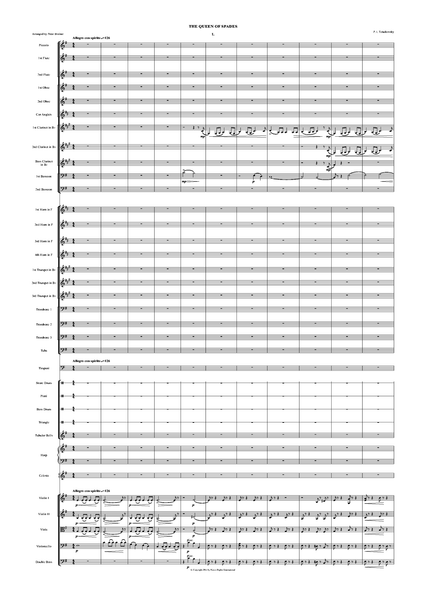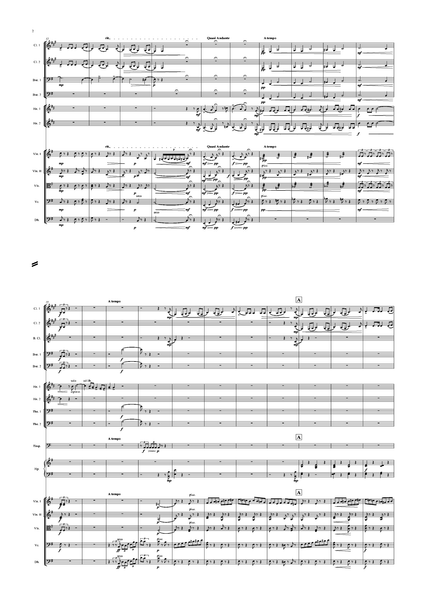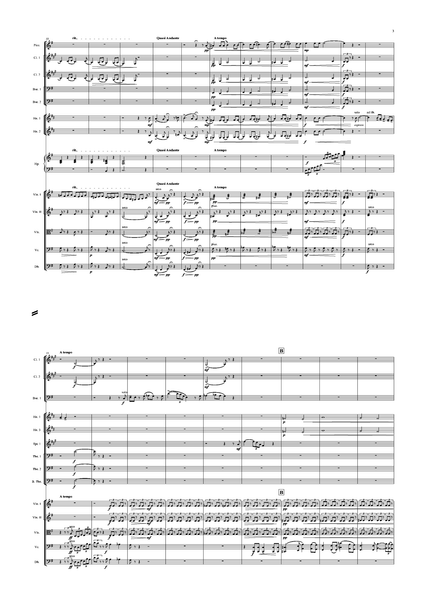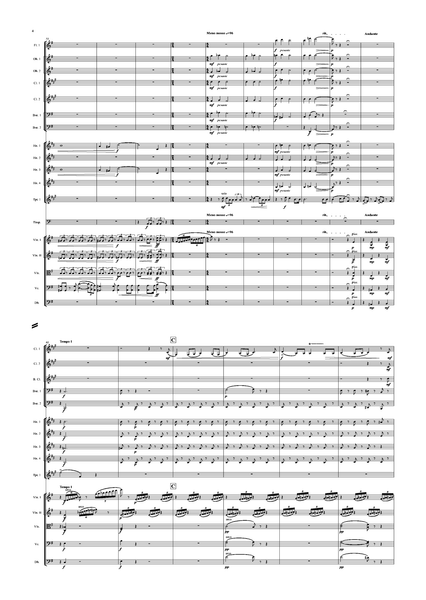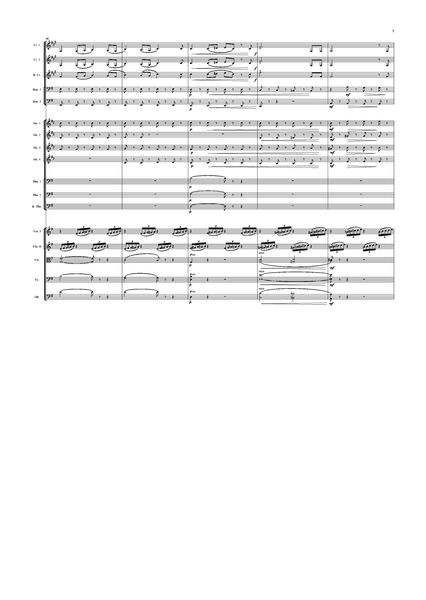Pyotr Ilyich Tchaikovsky: Queen of Spades Suite – arranged by Peter Breiner (PB051)
Sheet music edition. Choose your format from the selection above.
68 pages
Duration: 33m
Instrumentation: 2+1, 2+1, 2+1, 2+1 - 4, 3, 3, 1 - timp - perc - hp - cel - str
It is possibly for reasons of language that only two of Tchaikovskyʼs operas have found a continuing place in international operatic repertoire. Yevgeny Onegin (Eugene Onegin) and Pikovaya Dama (The Queen of Spades), both based on Pushkin, are more or less familiar to international audiences, while other operas by Tchaikovsky appear only intermittently in major opera houses. Tchaikovsky left ten completed operas, one in two versions. Peter Breinerʼs orchestral arrangements of excerpts from two of these operas will do something towards bringing their music into the concert hall to a new audience.
The three-act opera The Queen of Spades was completed in 1890 and first staged in the same year at the Mariinsky Theatre in St Petersburg. Based on Pushkin, the libretto was by Tchaikovskyʼs brother Modest.
In the Summer Garden in St Petersburg friends of Hermann, a young army officer, discuss his strange behaviour, how he watches others gambling, but never takes part. Hermann, entering with Count Tomsky, explains his sadness by his love for a girl whose name he does not know. Prince Yeletsky joins them and is congratulated on his engagement, but Hermann is horrified to find that Yeletskyʻs betrothed is the girl with whom he has fallen in love, Lisa, granddaughter of the old Countess. Count Tomsky tells his friends the story of the Countess and why she never gambles. When she was young in Paris, she had been given the secret of winning at cards and had used this to recoup her fortunes. She has been, thereafter, pledged never to play again, and, having revealed her secret to two others, is to die at the hands of the third to whom she confides it. Hermann is agitated at the story, and now left alone resolves to win the hand of Lisa from Prince Yeletsky by means of the Countessʼs secret.
In Lisaʻs room at the country house where she and the old Countess live, she and Pauline, with their friends, entertain one another with songs. They are told to restrain themselves by the Governess, sent to them by the Countess. On her balcony, now alone, Lisa has doubts about her betrothal, remembering the young officer she had seen in the park who had looked at her with such intensity. Hermann appears below and the two declare their love for each other, their meeting interrupted by the Countess telling Lisa to go to bed.
The second act is set at a ball. Yeletsky sings to Lisa of his love for her. Hermann is teased by his friends, who suggest that he will be the third man, the one to learn the secret of the Countess. The Master of Ceremonies intro- duces a pastoral interlude and Lisa tells Hermann how to reach the Countessʼs room. There, the same evening, the Countess regrets modern fashions, remembering the past. Hermann breaks in, demanding to learn her secret of winning and threatening her with his revolver. The Countess dies and Lisa, disturbed by the noise, comes in to find that Hermann has apparently used her to learn of the gamblerʻs secret.
In the third act, at his army quarters, Hermann is distraught. The ghost of the Countess appears to him and tells him the secret, three, seven, ace. By the side of the Winter Canal Lisa waits for Hermann, who appears, as the clock strikes midnight. Their meeting is interrupted, however, when Hermann insists on leaving at once for the gaming-house, where he may use what he has learned. Lisa realises Hermannʻs sole obsession and throws herself into the river. In the gaming-house Hermann plays against Yeletsky, staking everything on the last of the three cards, the expected ace. Instead it is the queen of spades that appears, seeming to look at him with the face of the Countess. In final madness he kills himself.
The first excerpt is based on Tomskyʼs ballad in the first act, when he tells the story of the Countess. It is followed by a version of Hermannʼs arioso in the first act, when he sings of his love for Lisa, whose name he does not yet know, amazing his interlocutors Chekalinsky, addicted to gambling, and Surin, an army officer. The second scene, in Lisaʼs room, provides the basis of the third excerpt, when Paulina sings a sad song and Lisaʼs friends try to cheer her up with a Russian clapping-song. The fourth excerpt is taken from the third act, where Lisa waits for Hermann. The final scene, in a gambling house, has Tomsky sing a song of love, applauded by the company, who join in a chorus, elements of the sixth excerpt. The sixth extract is based on the final scene of the opera, with Hermannʼs aria, and the concluding chorus, praying for his soul. Elements of the end of the first act, with its love scene in Lisaʼs room, when she admits to Hermann her love for him, form the final orchestral arrangement.
Audio Sample






